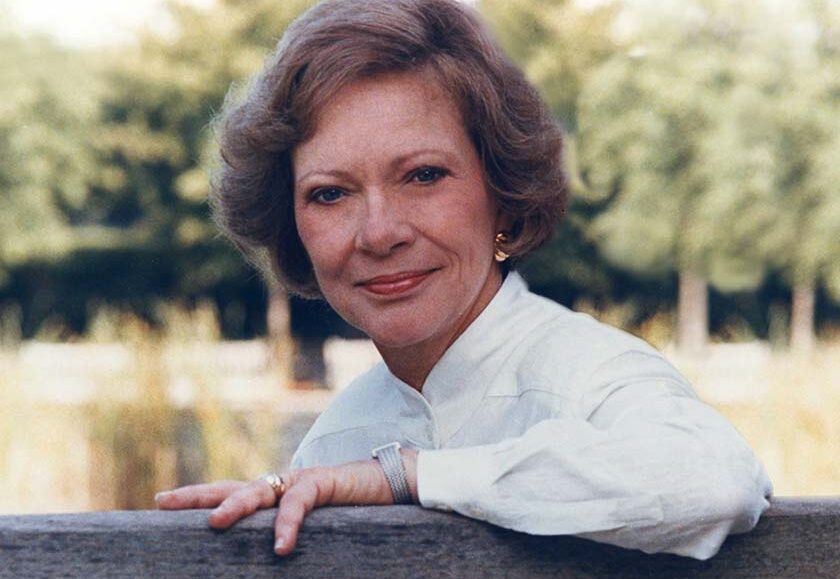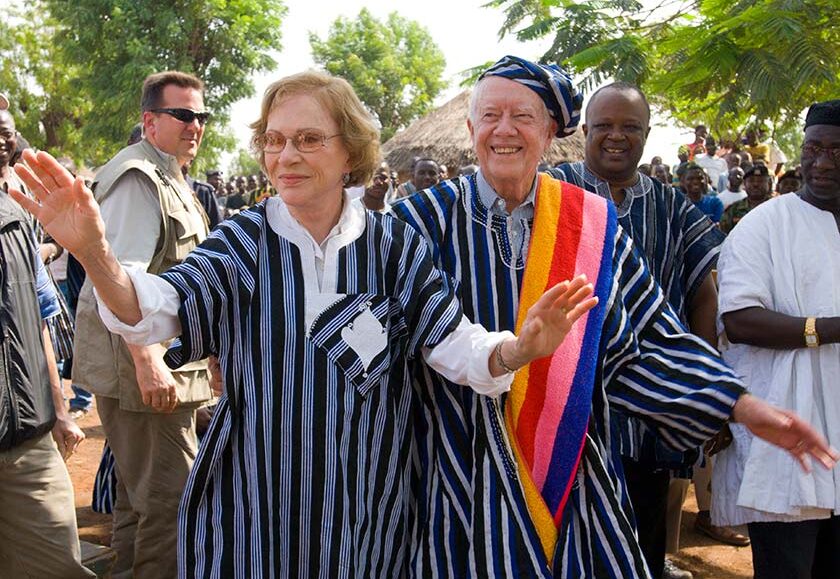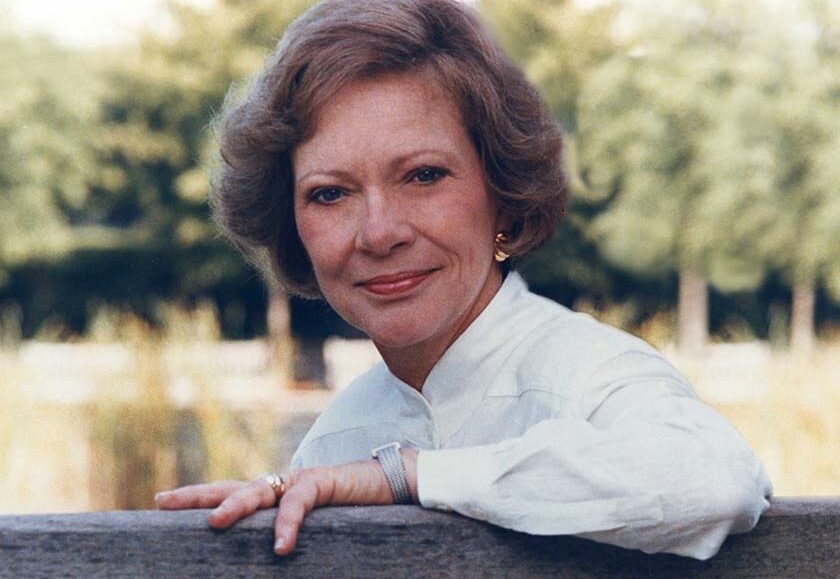By D. Kevin McNeir
Former First Lady Rosalynn Carter, an ardent supporter of women’s rights and a champion of mental health and caregiving, died peacefully on Sunday, Nov. 19, at her Plains, Georgia home, surrounded by her family. Mrs. Carter, who died at age 96, and Jimmy Carter, the 39th president of the United States, now 99, were married for 77 – the longest married presidential couple in U.S. history.
Among her favorite sayings, Mrs. Carter often said, “Do what you can to show you care about others and you will make our world a better place.”
Following her move from life in a rural farming community to the White House, she showed the world a new and spectacular vision of the first lady – a working partner and trusted advisor to the president, a participant in foreign and domestic affairs and an astute political strategist.
“Rosalynn was my equal partner in everything I ever accomplished,” President Carter said. “She gave me wise guidance and encouragement when I needed it. As long as Rosalynn was in the world, I always knew somebody loved and supported me.”
She is survived by her children – Jack, Chip, Jeff and Amy — and 11 grandchildren and 14 great-grandchildren.
“Besides being a loving mother and extraordinary first lady, my mother was a great humanitarian in her own right,” Chip Carter said. “Her life of service and compassion was an example for all Americans. She will be sorely missed not only by our family but by the many people who have better mental health care and access to resources for caregiving today.”
The White House years
During her years in the White House, Mrs. Carter devoted herself to creating what she described as “a more caring society.”
Early in 1977, barred by statute from being chair of the newly established President’s Commission on Mental Health, she became its honorary chair. In this capacity she held hearings across the country, testified before Congress and spearheaded passage of the Mental Health Systems Act of 1980.
Today, there are an estimated 53 million caregivers in the U.S. And for the most part, it stands as a thankless, if not invisible job.
Mrs. Carter continued her work in the field of mental health throughout her life. In Geneva, Switzerland, she became the first lady to address the World Health Organization.
Drawing from her own experiences as a working woman, wife, and mother, she spent many hours lobbying for support of the Equal Rights Amendment; mobilized representatives from private voluntary relief organizations, labor and the corporate world in an appeal that raised tens of millions of dollars for Cambodian refugees; and brought together 23 leading organizations to develop solutions for problems of the elderly at a White House Roundtable Discussion on Aging. Immunizing children against preventable disease served as a special focus for Mrs. Carter throughout her entire public service career.
Tributes pour in for former first lady
Reactions quickly began to pour in on Sunday afternoon after the news of her death was announced.
“She was well known for her efforts on mental health and caregiving and women’s rights. So, I hope that during the holidays, you’ll consider saying [you’ll] include the Carter family in your prayers,” first lady Jill Biden said while attending a holiday meal with service members at a naval station in Norfolk, VA.
President Joe Biden described the Carters as an “incredible family” who “brought so much grace to the office.”
“Above all, the deep love shared between Jimmy and Rosalynn Carter is the definition of partnership and their humble leadership is the definition of patriotism,” the Bidens said. “She lived her life by her faith.”
Former first lady Michelle Obama observed that Mrs. Carter understood “well” that there was no handbook to being first lady and used her platform in “profoundly meaningful ways.”
“Her groundbreaking work to combat the stigma faced by those struggling with their mental health brought light to so many suffering in silence,” Obama said in a statement posted to social media. “She advocated for better care for the elderly. She advanced women’s rights. And she remained a champion for those causes – and many others like building affordable housing for those in need and caring for our nation’s caregivers – in the more than four decades that followed.”




